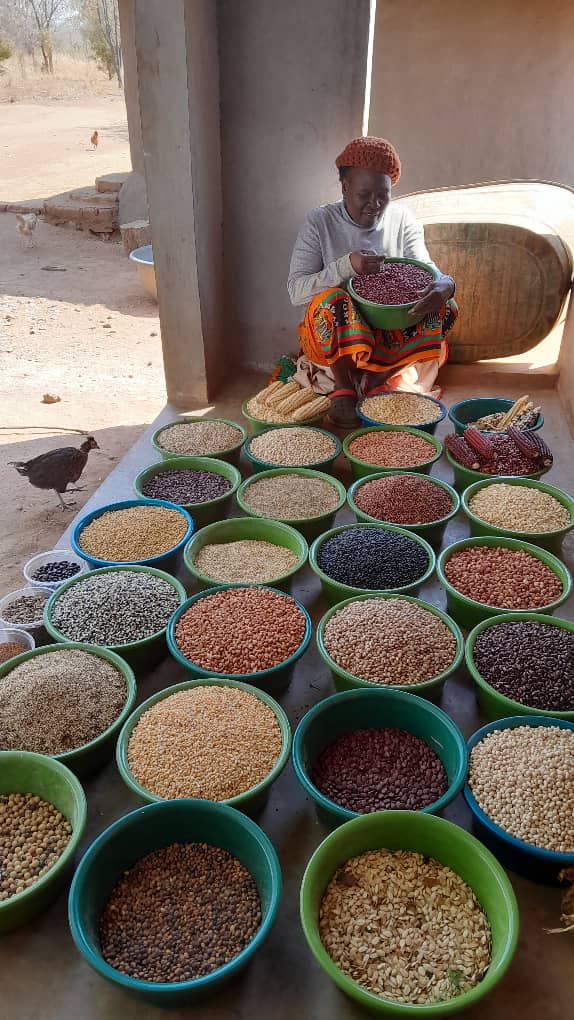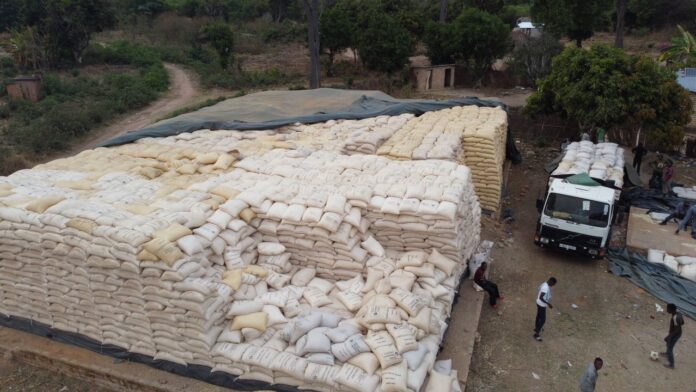The Farmer Input Support Programme (FISP), once a promising initiative to empower Zambia's small-scale farmers, has become a symbol of dependency, inefficiency, and environmental degradation. Instead of fostering resilience, it has left farmers more vulnerable, writes Charles Mafa.
Zambia’s smallholder farmers are heavily dependent on government-subsidised fertilizer and seed through FISP. While this support serves as a lifeline for many, it has also fostered a culture of dependency, MakanDay has established. Few farmers ever graduate from the programme, perpetuating reliance on synthetic inputs sourced from volatile global markets.
Experts warn that this dependency erodes traditional knowledge and weakens the resilience needed to cope with external shocks, such as last year’s El Niño and climate change-induced drought.
During his 2025 budget presentation, Finance Minister Dr. Situmbeko Musokotwane declared that FISP is here to stay. He announced plans to migrate the programme fully to the e-voucher system, which is intended to improve efficiency and target only eligible farmers.
MakanDay interviewed small-scale farmers in Chongwe, east of Lusaka, ahead of the 2025 farming season.
“I’m still waiting to receive my share of fertilizer and seed,” said one farmer, who preferred to remain anonymous. “Without FISP, we can’t do anything.”
A survey of over ten farmers revealed that most have depended on FISP for more than a decade. “It’s our only hope,” said another farmer, voicing concerns shared by many.
To access FISP, farmers must join cooperatives registered with the government and pay an annual contribution, currently K400. However, critics, including ActionAid, argue that FISP has not alleviated food insecurity for many smallholders, despite the government’s decision to halve the fertilizer allocation per farmer to expand the programme’s reach.
The roots of dependency
FISP evolved from the Fertilizer Credit Programme of 1997, which faced sustainability issues as most beneficiaries failed to repay loans. The current programme, designed as a temporary subsidy system, was intended to gradually phase out support. However, it has instead become a political tool, fostering long-term dependency among farmers, as some observers say.
For example, the World Bank’s 2021 report highlighted systemic inefficiencies, elite capture, and politicised allocation within FISP. While the programme now serves over a million farmers, a disproportionate share benefits large-scale farmers, sidelining many smallholders.
Additionally, smallholder farmers, convened by the Rural Women’s Assembly in 2021, described FISP as emblematic of a food system dominated by elites and agro-industrial interests, both local and international.
Soil Health and Biodiversity at Risk
Experts say FISP’s focus on maize production, reliant on hybrid seeds and synthetic fertilizers, has contributed to soil degradation, reduced biodiversity, and environmental vulnerability. According to the Africa Centre for Biodiversity (ACB), synthetic fertilizers and monocropping have led to declining soil fertility and acidification.
Critics also argue that FISP diverts significant resources away from essential agricultural investments like research, infrastructure, and extension services. For example, in the 2025 budget, FISP accounts for over 60% of the agricultural sector allocation, overshadowing funding for these critical areas.
Criticisms of AGRA’s influence in Zambia
Although Zambia has been a key focus for the Alliance for a Green Revolution in Africa (AGRA), which promotes industrial agriculture, critics argue that this approach has failed to deliver promised yield increases and has instead heightened farmers’ vulnerability to climate shocks.
“The current support system – the FISP – is partly to blame for the crises because of its orientation towards creating dependencies and an industrial farming system that does not generate ecological or human health benefits,” said ACB Executive Director Mariam Mayet.
“The drought also takes place within a context, namely farmers find it difficult to produce food in the context where their farming soils are increasingly eroded, land and water bodies polluted, and agrobiodiversity has witnessed a steep decline,” she added.
AGRA did not respond to MakanDay’s recent email inquiry. However, the government confirmed that the Ministry of Agriculture, along with other ministries, is working with AGRA to implement interventions aimed at enhancing productivity and competitiveness in the agri-food sector.
According to the government, these efforts focus on strengthening inclusive market systems, building resilience, reinforcing institutions, and creating a supportive environment for agricultural growth.
“This is fully aligned to Government’s policy to transform the agricultural sector to achieve increased productivity and production, reduced imports, increased export, increased contribution to GDP, enhance food and nutritional security, and increased creation of jobs,” said Ministry of Agriculture Permanent Secretary for Technical Services, John Mulongoti.
He added that to achieve these goals, the government must continue efforts to develop and commercialise improved seed varieties and technologies, particularly as the world grapples with the devastating effects of climate change.
“Government policy and programmes do not sideline local and indigenous seeds as wrongly perceived. Government is still promoting integration of all the seed systems,” Mulongoti said. “As a result, Zambia is party to the International Treaty on Plant Genetic Resources for Food and Agriculture and the International Convention on Biodiversity which commits the country as a Member State, to conserve indigenous seeds and plant genetic resources to promote biodiversity.”
More voices from the ground

Mary Phiri, a 63-year-old farmer from Mumbwa, believes Zambia has the potential to become Africa’s breadbasket if policies support local seeds and sustainable practices.
“With last year’s drought affecting much of the country, those who bought fertilizer and seeds may not return to farming. It feels like the end of the road,” said Phiri, the chairperson of the Rural Women’s Assembly in Zambia.
“We need to make deliberate efforts to develop alternative strategies, such as incorporating manure into farming, to promote soil recycling and sustainability,” she added. RWA is a rural movement of small-scale farmers, peasants, farm workers, fisher women and small traders that have members in ten countries in Southern Africa.
Phiri highlighted numerous challenges faced by female farmers, including limited access to land, insufficient empowerment opportunities, and difficulty accessing markets for her produce.
“Despite these challenges, farming is a source of livelihood for us. It not only puts food on our tables but also provides us with income,” explains.
“This income helps us manage other needs, like traveling to Lusaka for medical care, when necessary,” she added.
Despite the challenges facing the programme, government says it has no plans to phase out FISP, in the near future, calling it a cornerstone of its agriculture policy aimed at supporting vulnerable yet viable farmers.

Discover more from MAKANDAY
Subscribe to get the latest posts sent to your email.



